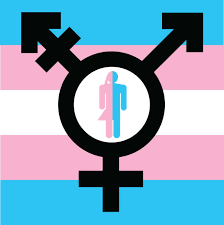Menopause is a natural part of aging that every woman experiences, typically between her late 40s and early 50s. It marks the end of menstruation and fertility, but it doesn’t come without its own set of challenges. One of the most significant changes during this phase is the fluctuation and eventual decline of estrogen, the primary female hormone. Understanding what happens to estrogen during menopause can empower women to navigate this transitional period with knowledge and confidence.
This article aims to unravel the complexities of estrogen’s role during menopause, what to expect during this time, the impact of low estrogen levels on health, and ways to embrace this new chapter in life. Let’s dive in and explore the fascinating journey of estrogen through menopause.Hrt Replacement Side Effects
Understanding Estrogen: The Key Female Hormone Explained
Estrogen is often referred to as the key female hormone, and for good reason. It plays a crucial role in the development and regulation of the female reproductive system, influencing everything from menstruation to pregnancy. Estrogen is produced mainly in the ovaries, but also in smaller amounts by the adrenal glands and fat tissues. This hormone helps maintain bone density, regulates cholesterol levels, and supports heart health, making it essential for overall well-being.
Beyond its biological functions, estrogen significantly affects mood and cognitive function. Women often report feeling more energetic and emotionally stable when estrogen levels are balanced. The importance of estrogen cannot be overstated, and its decline during menopause can lead to various physical and emotional challenges that many women will face.
What is Menopause and Why Does It Happen?
Menopause is defined as the time in a woman’s life when her menstrual periods permanently cease, signaling the end of her reproductive years. Biologically, menopause occurs when the ovaries stop producing eggs and the levels of hormones, particularly estrogen and progesterone, begin to decline. This transition is typically gradual, leading to a phase called perimenopause, which can last several years before menopause officially begins.
The root cause of menopause is largely related to aging. As women age, the number of functioning ovarian follicles decreases, resulting in diminished hormone production. Factors such as genetics, lifestyle, and certain medical conditions can also accelerate the onset of menopause. Understanding this natural process can alleviate some of the anxiety surrounding this major life transition.
The Estrogen Rollercoaster: What to Expect
During perimenopause, many women experience what has been dubbed the "estrogen rollercoaster." This phase is characterized by fluctuating hormone levels, leading to a variety of symptoms such as irregular periods, hot flashes, and mood swings. The body’s attempt to adjust to these changes can be quite tumultuous, often leaving women feeling out of control.
As menopause approaches, estrogen levels begin to drop more significantly, leading to a more stable, yet lower, baseline of the hormone. This decline can result in a newfound sense of normalcy for some women, but it also brings its own set of challenges, making it essential to understand what these hormonal shifts mean for your body and mind.
How Estrogen Levels Drop During Menopause
The decline in estrogen during menopause occurs in stages. Initially, during perimenopause, estrogen levels can fluctuate wildly, causing a range of symptoms. Once menopause officially begins, estrogen levels take a sharp decline, resulting in a significant drop that affects various bodily functions. Typically, estrogen levels fall to about 10% to 20% of their previous levels, which can be startling for many women who have relied on this hormone for much of their lives.
This drop in estrogen can be a gradual process, but for some, the shift can feel abrupt. This significant hormonal change often leads to a host of physical and emotional symptoms that can challenge a woman’s sense of self. Recognizing the nature of these changes can help women prepare for and cope with this transitional phase.
Symptoms of Low Estrogen: What Your Body Tells You
As estrogen levels drop, many women begin to experience a range of symptoms that can vary in intensity and duration. Common symptoms include hot flashes, night sweats, mood swings, and vaginal dryness. Some women may also experience fatigue, sleep disturbances, and difficulty concentrating, often referred to as "brain fog." These symptoms can be frustrating and sometimes overwhelming, making it important to stay informed about what your body is going through.
It’s crucial to remember that everyone’s experience with low estrogen is unique. Some women may sail through menopause with few symptoms, while others may find it challenging. Keeping track of your symptoms and discussing them with a healthcare provider can lead to a tailored approach to managing this phase of life.
The Impact of Reduced Estrogen on Your Health
Low estrogen levels during menopause can have far-reaching effects on overall health. One significant impact is the increased risk of osteoporosis, as estrogen plays a vital role in maintaining bone density. When estrogen levels drop, bones can become more porous and fragile, leading to a higher likelihood of fractures. Additionally, reduced estrogen can affect cardiovascular health, as it helps regulate cholesterol levels and maintains the elasticity of blood vessels.
Mental health can also be impacted, as the drop in estrogen is linked to mood changes, anxiety, and depression. Women may find that their emotional well-being fluctuates during this time, making it essential to seek support from friends, family, or mental health professionals when needed. Understanding these health implications can motivate women to take proactive measures in maintaining their well-being during and after menopause.
Natural Ways to Balance Your Estrogen Levels
There are several natural ways to help balance estrogen levels and ease the transition through menopause. Diet plays a significant role; incorporating phytoestrogens, which are plant-based compounds that mimic estrogen, can be beneficial. Foods like soy products, flaxseeds, and whole grains can help support hormonal balance. Additionally, maintaining a healthy weight through regular exercise can positively influence estrogen levels and overall hormonal health.
Lifestyle modifications can also play a key role in managing symptoms. Reducing stress through mindfulness practices like yoga, meditation, and deep breathing can help alleviate some of the emotional ups and downs experienced during menopause. Staying hydrated and limiting caffeine and alcohol can further support hormonal balance and improve overall comfort during this transition.
Embracing Menopause: Tips for a Smoother Transition
While menopause may come with its challenges, it can also be an empowering time for many women. Embracing this phase of life involves fostering a positive mindset and recognizing the wisdom and strength gained through experiences. Staying connected with friends and loved ones can provide valuable support, as sharing experiences and coping strategies can make the journey feel less isolating.
Establishing a self-care routine that prioritizes physical and emotional well-being can also make a significant difference. Engaging in regular physical activity, exploring new hobbies, and practicing self-compassion can help women feel more balanced and in control. Ultimately, viewing menopause as a natural transition rather than a burden can lead to a more fulfilling and enriched life.
Navigating the changes that come with menopause can feel daunting, especially when it involves the significant drop in estrogen levels. However, understanding what to expect and how to manage these changes can empower women to embrace this new chapter. By focusing on self-care, seeking support, and adopting healthy lifestyle choices, it’s possible to make the transition smoother and even enjoyable. Remember, menopause is just one phase in the beautiful journey of womanhood, and with the right tools, you can thrive through it.


